Field weighted citation scores information
Home » Trending » Field weighted citation scores informationYour Field weighted citation scores images are available. Field weighted citation scores are a topic that is being searched for and liked by netizens today. You can Find and Download the Field weighted citation scores files here. Find and Download all royalty-free photos and vectors.
If you’re looking for field weighted citation scores images information linked to the field weighted citation scores keyword, you have come to the ideal blog. Our site always provides you with hints for seeing the maximum quality video and image content, please kindly surf and find more informative video articles and graphics that fit your interests.
Field Weighted Citation Scores. Citation impacts normalised by the field, like the fwci, indicate how the number of citations received by a researcher’s publications compares to the average or expected number of citations received by other similar publications. To find the citation counts to your own articles: One way to do this is by using the field weighted citation impact score from scopus. Author field weighted citation impact (fwci) what.
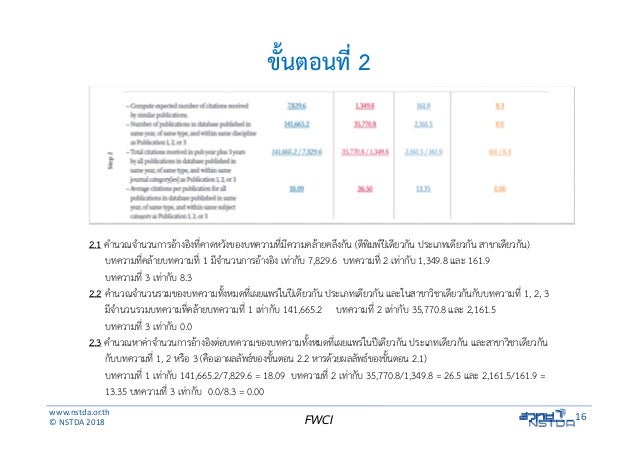 FieldWeighted Citation Impact (FWCI) From slideshare.net
FieldWeighted Citation Impact (FWCI) From slideshare.net
The global mean of the fwci is 1.0, so an fwci of 1.50 means 50% more cited than the world. The fnci’s calculation is a well known methodology in bibliometric practice. To find the citation counts to your own articles: ‘similar publications’ are understood to be publications in Because the fwci comes from the scopus database, only documents within the database (1996 to the present) will have a fwci. Article field weighted citation impact (fwci) indicates how the number of citations received by an article compares to the average or expected number of citations received by other similar publications.
To find the citation counts to your own articles:
The fwci score indicates how the number of citations received by an entity’s publications compares with the average number of citations received by all other similar publications. Citation impacts normalised by the field, like the fwci, indicate how the number of citations received by a researcher’s publications compares to the average or expected number of citations received by other similar publications. Author field weighted citation impact (fwci) what. Article field weighted citation impact (fwci) what. Article field weighted citation impact (fwci) indicates how the number of citations received by an article compares to the average or expected number of citations received by other similar publications. Similar publications are determined by year, type, and discipline.
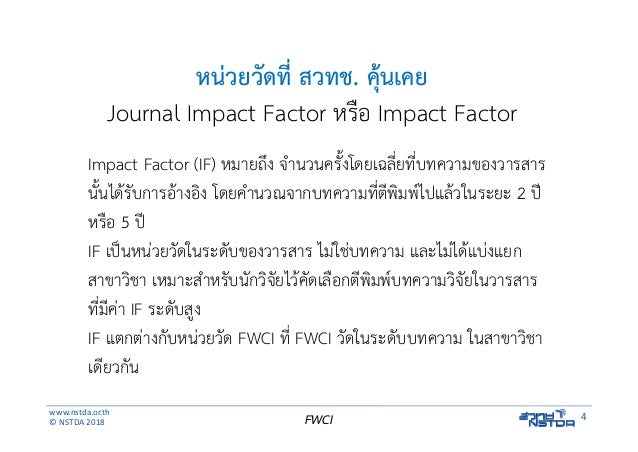 Source: slideshare.net
Source: slideshare.net
Fwci is a unique metric that is only available via scopus/scival and is. It can be used to directly compare/benchmark the performance of an article against other articles (even in different subject areas) because it is normalized. Article field weighted citation impact (fwci) what. Evaluation of the minerva research initiative. Because the fwci comes from the scopus database, only documents within the database (1996 to the present) will have a fwci.
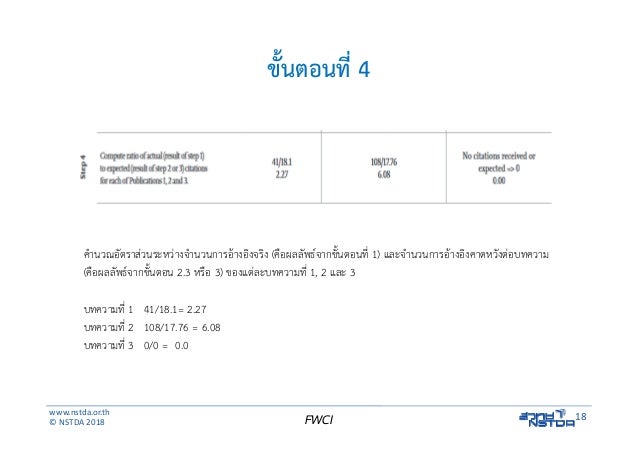 Source: slideshare.net
Source: slideshare.net
Evaluation of the minerva research initiative. The fwci score indicates how the number of citations received by an entity’s publications compares with the average number of citations received by all other similar publications. (fwci) score comes from the scopus database and shows how the article�s citation count compares to similar articles in the same field and timeframe. Fwci equals to the total citations actually received divided by the total citations that would be expected based on the average of the considered field. Because the fwci comes from the scopus database, only documents within the database (1996 to the present) will have a fwci.
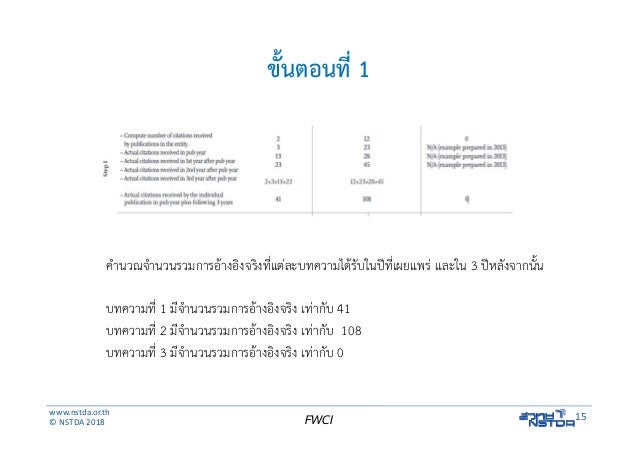 Source: slideshare.net
Source: slideshare.net
Article field weighted citation impact (fwci) indicates how the number of citations received by an article compares to the average or expected number of citations received by other similar publications. To ensure accuracy for popular names, enter univ illinois in the middle search box, then select “address” from the field drop down menu on the right. Author field weighted citation impact (fwci) what. Similar publications are determined by year, type, and discipline. Citation impacts normalised by the field, like the fwci, indicate how the number of citations received by a researcher’s publications compares to the average or expected number of citations received by other similar publications.
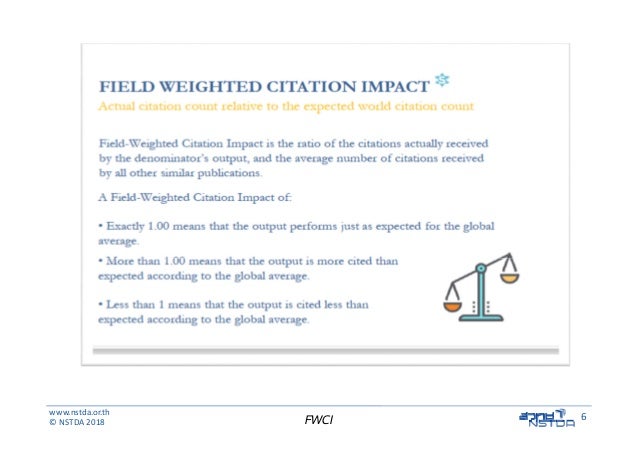 Source: slideshare.net
Source: slideshare.net
Similar publications are determined by year, type, and discipline. Enter the name of the author in the top search box (e.g. In short, any citation of an established scientist, whose numerous papers have already attracted several citations, should be weighted more than a citation by a newcomer to the field. The global mean of the fwci is 1.0, so an fwci of 1.50 means 50% more cited than the world. The fwci score indicates how the number of citations received by an entity’s publications compares with the average number of citations received by all other similar publications.
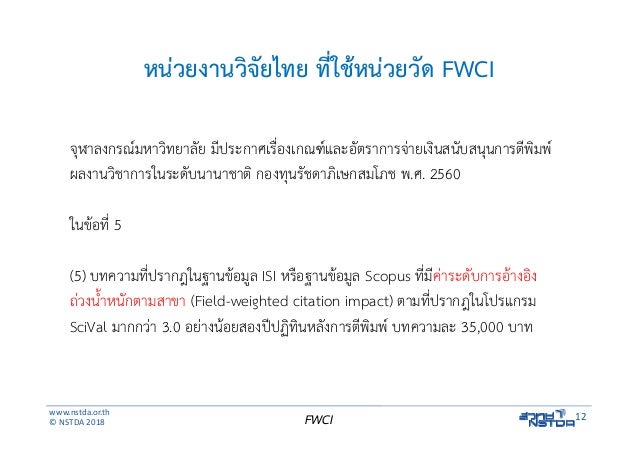 Source: slideshare.net
Source: slideshare.net
Article field weighted citation impact (fwci) what. ‘similar publications’ are understood to be publications in In short, any citation of an established scientist, whose numerous papers have already attracted several citations, should be weighted more than a citation by a newcomer to the field. The fnci’s calculation is a well known methodology in bibliometric practice. Fwci is a unique metric that is only available via scopus/scival and is.
 Source: researchgate.net
Source: researchgate.net
It can be used to directly compare/benchmark the performance of an article against other articles (even in different subject areas) because it is normalized. Article field weighted citation impact (fwci) indicates how the number of citations received by an article compares to the average or expected number of citations received by other similar publications. Similar publications are determined by year, type, and discipline. • exactly 1 means that the output performs just as expected for the global average. Fwci shows how the article�s citation count compares to similar articles in the same field and timeframe.
 Source: slideshare.net
Source: slideshare.net
‘similar publications’ are understood to be publications in Evaluation of the minerva research initiative. Author field weighted citation impact (fwci) what. ‘similar publications’ are understood to be publications in To find the citation counts to your own articles:
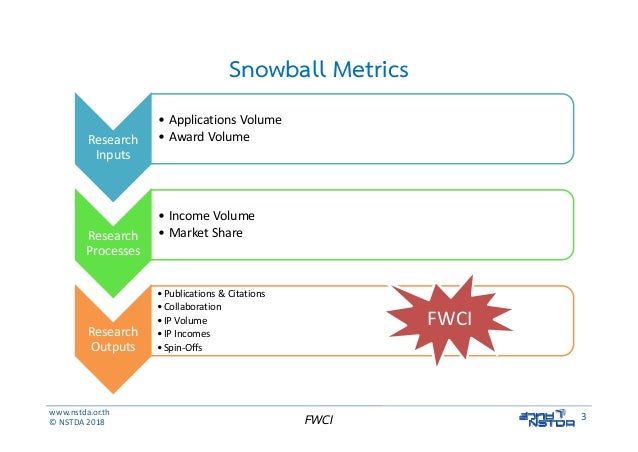 Source: slideshare.net
Source: slideshare.net
In this paper we suggest a possible solution of this problem by defining the weight of a scientific citation and using this notion to modify and improve performance indices defined. One way to do this is by using the field weighted citation impact score from scopus. Article field weighted citation impact (fwci) what. • exactly 1 means that the output performs just as expected for the global average. (fwci) score comes from the scopus database and shows how the article�s citation count compares to similar articles in the same field and timeframe.
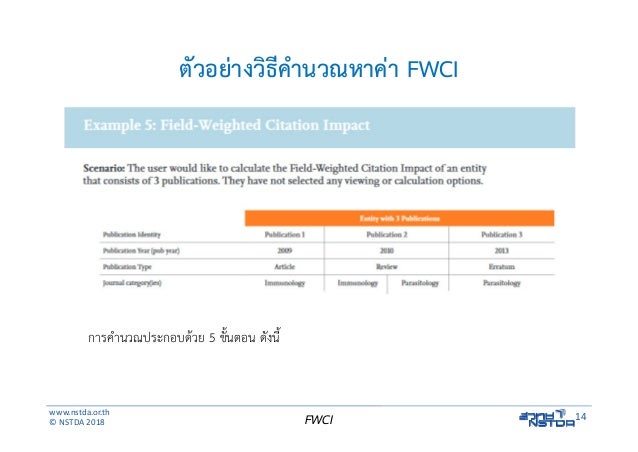 Source: slideshare.net
Source: slideshare.net
To find the citation counts to your own articles: It can be used to directly compare/benchmark the performance of an article against other articles (even in different subject areas) because it is normalized. To ensure accuracy for popular names, enter univ illinois in the middle search box, then select “address” from the field drop down menu on the right. Evaluation of the minerva research initiative. One way to do this is by using the field weighted citation impact score from scopus.
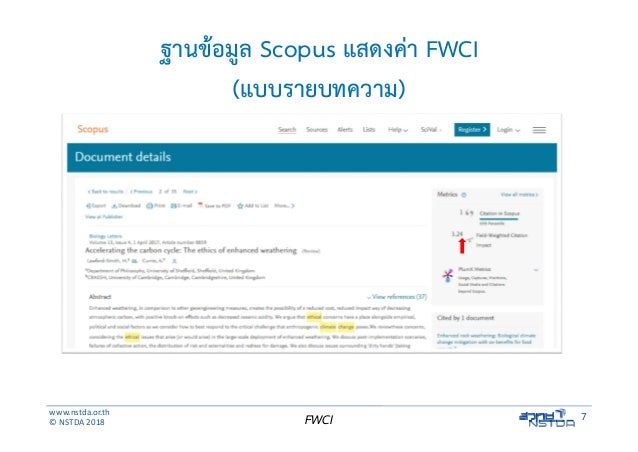 Source: slideshare.net
Source: slideshare.net
Fwci is a unique metric that is only available via scopus/scival and is. Because the fwci comes from the scopus database, only documents within the database (1996 to the present) will have a fwci. The fwci score indicates how the number of citations received by an entity’s publications compares with the average number of citations received by all other similar publications. Fwci equals to the total citations actually received divided by the total citations that would be expected based on the average of the considered field. Author field weighted citation impact (fwci) what.
 Source: libguides.unimap.edu.my
Source: libguides.unimap.edu.my
In this paper we suggest a possible solution of this problem by defining the weight of a scientific citation and using this notion to modify and improve performance indices defined. It can be used to directly compare/benchmark the performance of an article against other articles (even in different subject areas) because it is normalized. Fwci shows how the article�s citation count compares to similar articles in the same field and timeframe. Article field weighted citation impact (fwci) indicates how the number of citations received by an article compares to the average or expected number of citations received by other similar publications. The fnci’s calculation is a well known methodology in bibliometric practice.
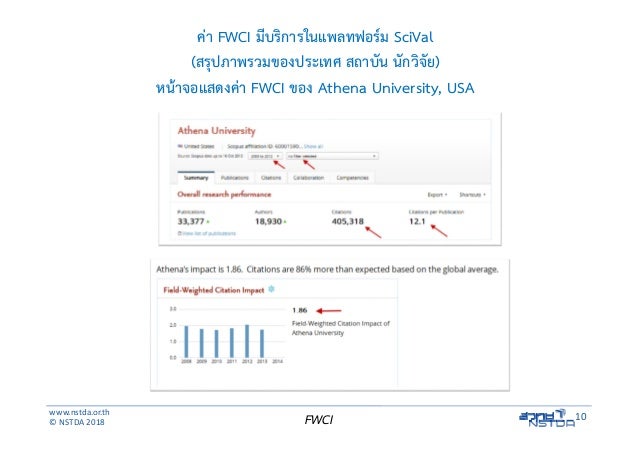 Source: slideshare.net
Source: slideshare.net
It can be used to directly compare/benchmark the performance of an article against other articles (even in different subject areas) because it is normalized. (fwci) score comes from the scopus database and shows how the article�s citation count compares to similar articles in the same field and timeframe. The global mean of the fwci is 1.0, so an fwci of 1.50 means 50% more cited than the world. Evaluation of the minerva research initiative. To ensure accuracy for popular names, enter univ illinois in the middle search box, then select “address” from the field drop down menu on the right.
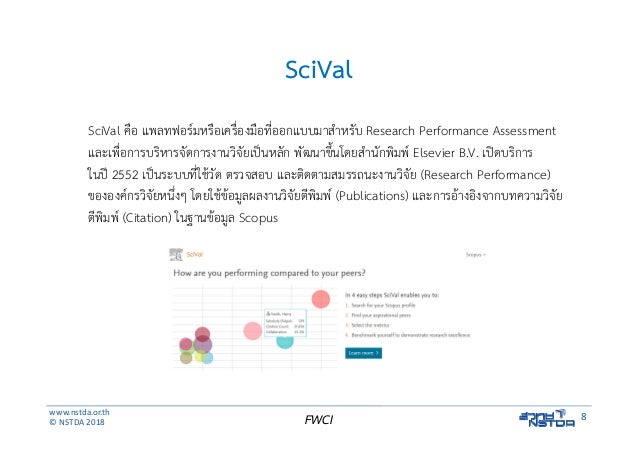 Source: slideshare.net
Source: slideshare.net
(fwci) score comes from the scopus database and shows how the article�s citation count compares to similar articles in the same field and timeframe. To ensure accuracy for popular names, enter univ illinois in the middle search box, then select “address” from the field drop down menu on the right. Evaluation of the minerva research initiative. In short, any citation of an established scientist, whose numerous papers have already attracted several citations, should be weighted more than a citation by a newcomer to the field. Article field weighted citation impact (fwci) what.
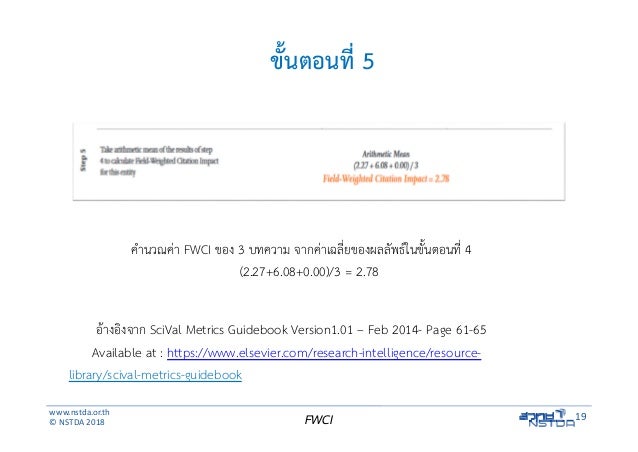 Source: slideshare.net
Source: slideshare.net
(fwci) score comes from the scopus database and shows how the article�s citation count compares to similar articles in the same field and timeframe. Article field weighted citation impact (fwci) indicates how the number of citations received by an article compares to the average or expected number of citations received by other similar publications. Enter the name of the author in the top search box (e.g. Fwci shows how the article�s citation count compares to similar articles in the same field and timeframe. ‘similar publications’ are understood to be publications in
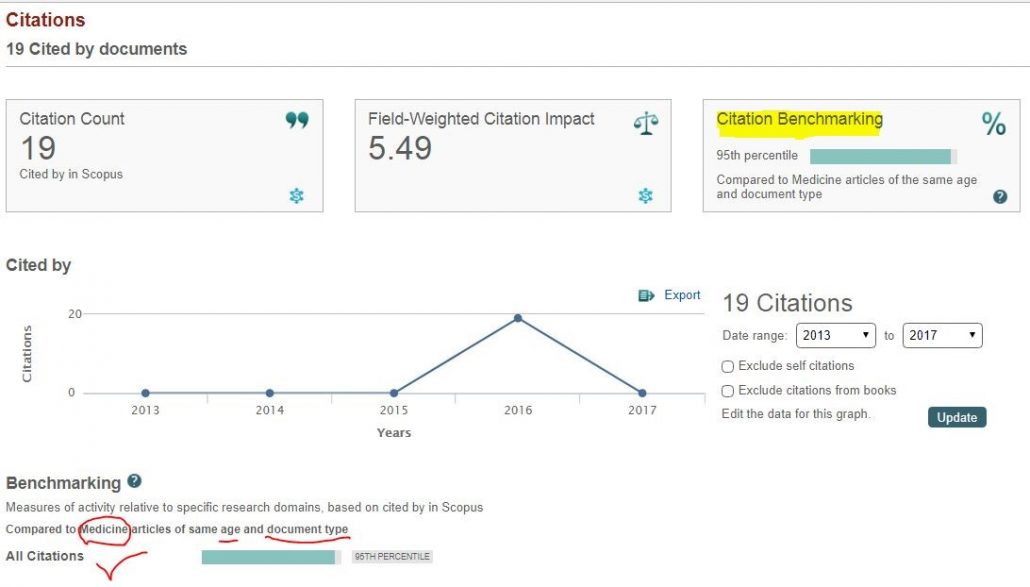 Source: lib2mag.ir
Source: lib2mag.ir
It can be used to directly compare/benchmark the performance of an article against other articles (even in different subject areas) because it is normalized. In short, any citation of an established scientist, whose numerous papers have already attracted several citations, should be weighted more than a citation by a newcomer to the field. Fwci equals to the total citations actually received divided by the total citations that would be expected based on the average of the considered field. The fnci’s calculation is a well known methodology in bibliometric practice. One way to do this is by using the field weighted citation impact score from scopus.
 Source: researchgate.net
Source: researchgate.net
Fwci shows how the article�s citation count compares to similar articles in the same field and timeframe. Fwci equals to the total citations actually received divided by the total citations that would be expected based on the average of the considered field. To find the citation counts to your own articles: Fwci is a unique metric that is only available via scopus/scival and is. Similar publications are determined by year, type, and discipline.
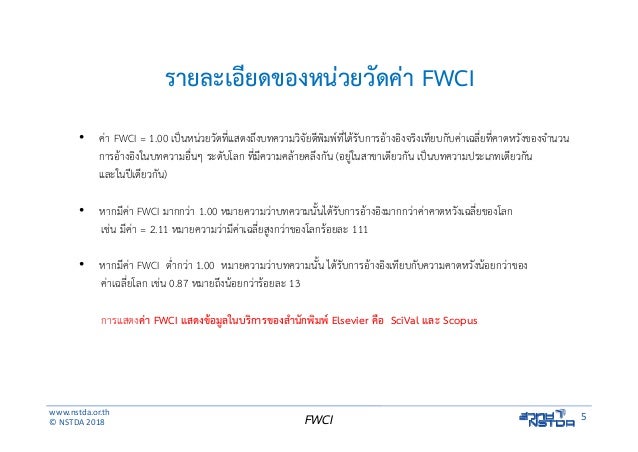 Source: slideshare.net
Source: slideshare.net
One way to do this is by using the field weighted citation impact score from scopus. Enter the name of the author in the top search box (e.g. Similar publications are determined by year, type, and discipline. One way to do this is by using the field weighted citation impact score from scopus. • exactly 1 means that the output performs just as expected for the global average.
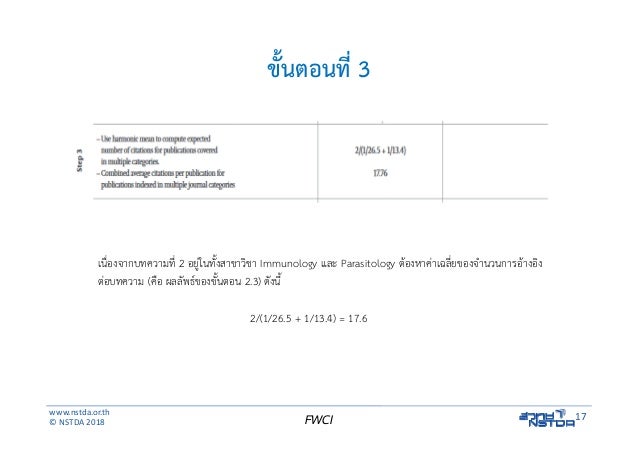 Source: slideshare.net
Source: slideshare.net
Article field weighted citation impact (fwci) what. To ensure accuracy for popular names, enter univ illinois in the middle search box, then select “address” from the field drop down menu on the right. It can be used to directly compare/benchmark the performance of an article against other articles (even in different subject areas) because it is normalized. Similar publications are determined by year, type, and discipline. Evaluation of the minerva research initiative.
This site is an open community for users to do submittion their favorite wallpapers on the internet, all images or pictures in this website are for personal wallpaper use only, it is stricly prohibited to use this wallpaper for commercial purposes, if you are the author and find this image is shared without your permission, please kindly raise a DMCA report to Us.
If you find this site good, please support us by sharing this posts to your own social media accounts like Facebook, Instagram and so on or you can also save this blog page with the title field weighted citation scores by using Ctrl + D for devices a laptop with a Windows operating system or Command + D for laptops with an Apple operating system. If you use a smartphone, you can also use the drawer menu of the browser you are using. Whether it’s a Windows, Mac, iOS or Android operating system, you will still be able to bookmark this website.
Category
Related By Category
- Easybib chicago citation information
- Doi to apa citation machine information
- Citation x poh information
- Cpl kyle carpenter medal of honor citation information
- Goethe citation dieu information
- Exact citation apa information
- Citation une impatience information
- Fitzgerald way out there blue citation information
- Contre le racisme citation information
- Friedrich nietzsche citaat grot information